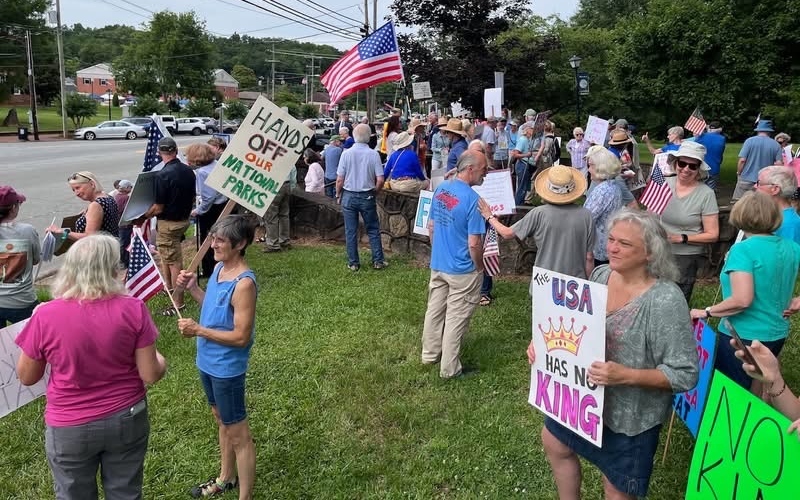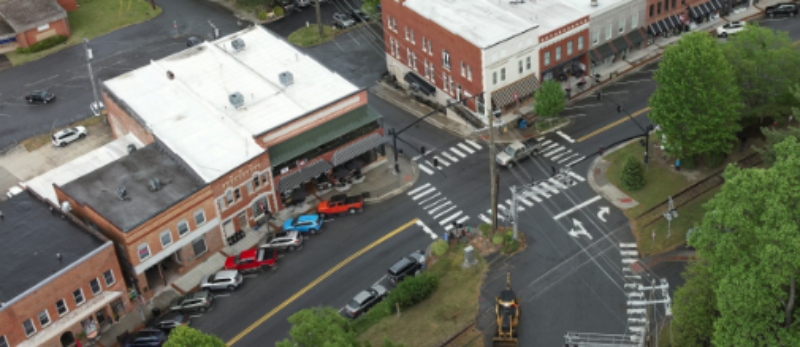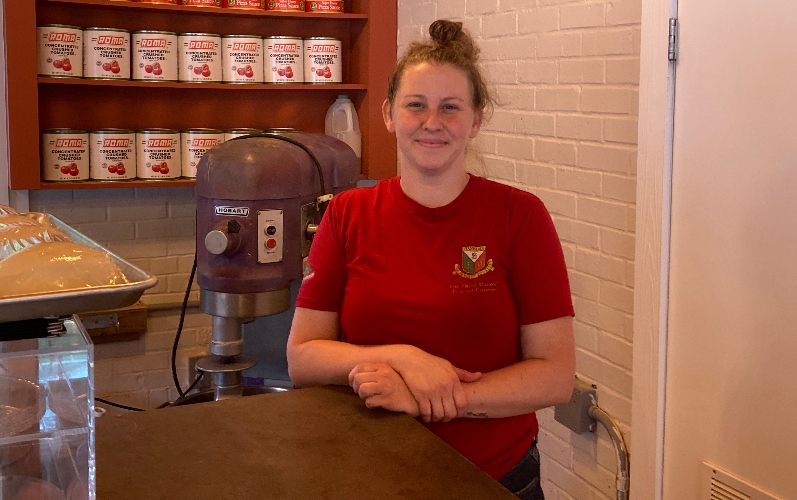Nina Simone and Tryon
Published 10:00 pm Tuesday, April 12, 2016
To the editor:
Walk down Trade Street from Stott’s Ford all the way to Side Street Pizza and you will pass by some of Tryon’s most iconic representations, a town clock, a miniature Trojan horse named Morris, rusting railroad tracks, and, tucked off to the side, a bronze statue of an unsmiling Nina Simone. Toys, crafts, horses, pizza, and Nina Simone uniquely represent Tryon, one of the region’s best-known small towns.
A remarkable documentary that almost won an Oscar this year along with Alan Light’s book, What Happened, Miss Simone? highlights not only Simone’s career but also the Jungian disfigurement that marked her life and talent. Exactly what did happen to Nina Simone in Tryon and what does it say about the “friendliest town in the South?”
Born Eunice Kathleen Waymon in 1933 to an invalid father, John Divine, and a traveling Methodist minister mother, Mary Kate, she changed her name in 1954 to “Nina,” an affectionate nickname given her by an ex-boyfriend, and “Simone” from Simone Signoret, the controversial French actress who dropped her Jewish name in 1940 for Signoret. The contrived name imitated Simone’s life. Like the real Simone, Nina thought herself an “alien” wherever she was, persecuted not because she was Jewish but black. Yet Simone found prejudice and hostility everywhere whether real or imagined.
The Tryon of Simone’s youth peculiarly had some of the same characteristics as today, a decorous, understated racial tension, an African-American population made almost invisible, and a critical number of artists, musicians, and artisans who flocked to its sophisticated smallness. One, Muriel Mazzanovich, the British wife of a Russian painter, became Simone’s piano teacher. In “Miz Mazzy,” Simone entered a world of Bach, Brahms, and Beethoven she never left even as it made her more alien. She maintained that no one “knew how isolated my music made me,” a black child prodigy who became an unperson in the segregated South, a different Ishmael to both white and black communities. She once wrote “I don’t belong here/I don’t belong there/I’ve even stopped believing in prayer.”
Led by white benefactors like Muriel Mazzanovich and Mrs. Miller, her mother’s part-time employer, Tryon raised monies to educate and train what many thought would be America’s first black classical pianist, an honor quickly claimed by Hazel Scott. The funds helped through boarding school in Asheville, the Julliard School of Music in Manhattan, and, later in Philadelphia. Whether actuated by philanthropy, guilt, pride, or any number of mixed motives, Tryon heavily invested both its time and money in Simone.
Tryon’s period treatment of Simone contrasts favorably if tentatively with that of Cordele, Georgia, and its most famous son, Elijah Muhammad, the founder of Black Muslims, or of Chicago and its non-embrace of Lorraine Hansberry, Simone’s political mentor who wrote A Raisin in the Sun. Hansberry inspired one of Simone’s most famous songs, To Be Young, Beautiful, and Black. In truth, Simone’s career seems more a thankless aberration rather than a realistic reflection of her treatment, good or bad, in Tryon or anywhere she lived. Yet Tryon should never be thought of as uninfluential or colorblind then or now. Perhaps it simply practiced a more sophisticated form of small town bigotry.
The unique attention given to Simone overshadows long-term and longer-lasting achievements of Tryon’s African-American community, within itself another alienation. In unsurprising and myriad ways, that same community, with its values on religion, church, family, place, and education, quietly has given us generations of Carsons, Millers, Foxes, Smiths, Bakers, and Bryans, among so many, who have sung in our choirs, crafted our dolls, painted our scenes, educated our children, preached in our churches, governed our town, nurtured our spirits, and worked everlastingly. As the self-proclaimed friendliest town in the South, Tryon needs to do more with its long-resident African-American citizens as well as tourists and outsiders to merit that title. That’s a Biblical prescription for us all.
Milton Ready
Tryon, N.C.





